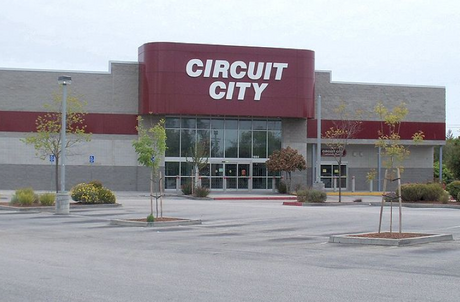
From the Wall Street Journal's Bankruptcy Beat, "An inside look at companies in trouble from Daily Bankruptcy Review," on 25 October 2012, "Lessons From the Death of Circuit City," by By Rachel Feintzeig -- Alan L. Wurtzel spent his adolescence putting antennas on roofs, delivering televisions and listening in on the Sunday night strategy sessions his father—the ambitious, optimistic founder of a Virginia electronics retailer—held in their home.
Over the course of the next sixty years, Circuit City Stores Inc. would grow into a company with 700-plus stores and $12 billion-in-sales—and then quickly collapse into bankruptcy and liquidation. Wurtzel would go on to helm the company and then cut his ties with it only to eventually be drawn back in by the aftermath.
“I wanted to understand what happened,” Wurtzel said.
The former Circuit City chief executive spent years sifting through filings and interviewing scores of former employees, directors, suppliers and analysts in an effort to unravel how the concept that came to his dad in a barber shop devolved into a victim of the global downturn and shifting consumer shopping patterns. His research recently yielded “Good to Great to Gone: The 60 Year Rise and Fall of Circuit City.” The book, which went on sale on Tuesday, is a case study, he says, of a business that found its stride and then refused to speed up when the pace of the industry quickened.

Circuit City wasn’t necessarily fated to collapse in 2009, Wurtzel said in an interview Wednesday, “had it woken up sooner.” Instead, management ushered in the new century with largely the same strategy Wurtzel had developed in 1980, focusing on services that customers didn’t need or want anymore. 2000 was technically the company’s best year, but even in the late 1990s, competitors like Best Buy BBY -1.98% Costco COST +0.05% and Kmart had already begun to chip away at the business’s foundation.
“It wasn’t obvious in sales and earnings, but the rot had set in,” Wurtzel said.
At that time, Wurtzel was a member of the company’s board, having stepped down as CEO in 1986. By 2000, he had also left the board and was completely uninvolved with the company.

“I sold my stock because I didn’t believe in the future,” he said.
Inside the business, management was aware of the retailer’s shortcomings, “but there was an arrogance,” Wurtzel said. He believes Circuit City’s decision makers weren’t scared enough by the shifting pressures in the industry nor nimble enough to quickly change course.
Two former chief executives and a former attorney for Circuit City and its management couldn’t immediately be reached for comment Thursday in response to Wurtzel’s criticisms.
Wurtzel believes that once management finally came up with a plan, it failed to execute it, deterred by pressure from Wall Street. The investments that would have moved Circuit City’s business forward also would have threatened its stock price, he said.
“I don’t think you can turn around a failing company in the full glare of publicity,” he said.
That observation led Wurtzel to a tangible recommendation for struggling businesses: Go private before executing a turnaround. But many of the lessons he learned from studying his family business are vaguer and read almost like maxims. He calls them “habits of mind,” and they include mantras like “be humble,” “run scared” and “curiosity sustained the cat.”
“Don’t think you know all the answers, because once you get complacent, you’re in trouble,” he said.
Wurtzel’s father, Sam Wurtzel, opened a television store known as Wards, the first location in the eventual Circuit City empire, in Richmond, Va., in 1950. The idea came to him when he was passing through the city, stopped for a haircut and heard the barber talking about the South’s first television station, which had just debuted there.
“The day he opened the store, he thought it would be a billion-dollar company,” Alan Wurtzel said of his father.
The business evolved over the years, shifting from smaller hi-fi stores, selling gadgets like tuners and speakers, to bigger footprints offering a wider variety of electronics. The company faced bankruptcy in the 1970s but prevailed, and a name change and billions in sales followed. When the most recent economic crisis struck, Circuit City headed for Chapter 11 and tried to downsize but ultimately failed to pull off a reorganization. Some 43,000 workers were left unemployed.
Wurtzel said it was painful to see the company shut down.
“I think in some ways it’s like losing a child,” he said, adding that he had expected to survive the business and “found it contrary to the natural order of things” to see it dissolve.
Circuit City’s lifespan proves that businesses have to fight hard every day, Wurtzel said.
“The world is always changing, and you can’t rely on your past accomplishments,” he said. (source: The Wall Street Journal)
Good to Gone to Great: The Circuit City Story




No comments:
Post a Comment